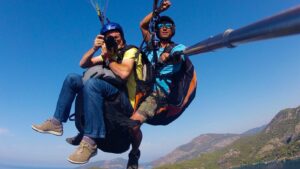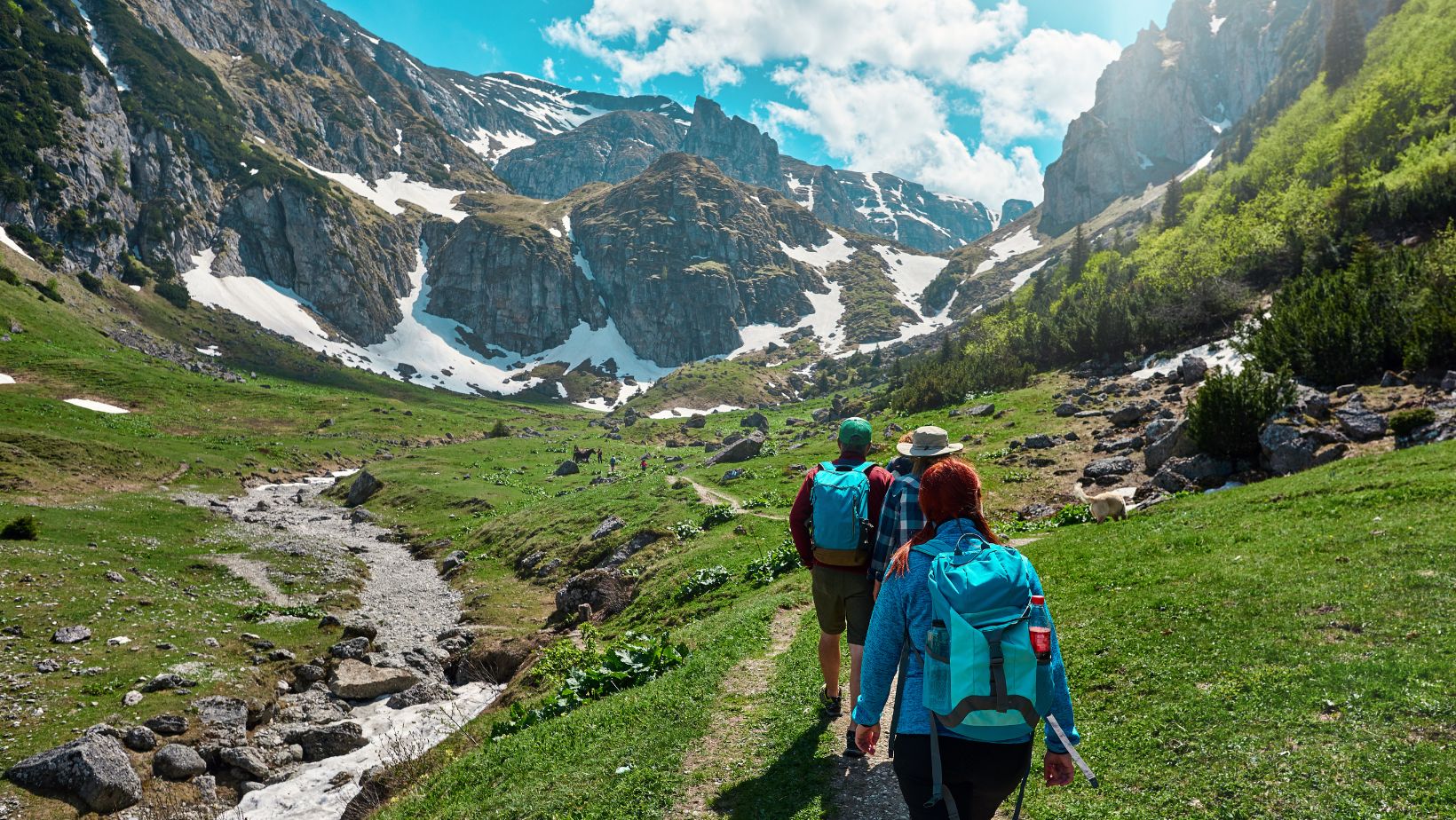Adventure travel is evolving rapidly, capturing the hearts of wanderers seeking unique experiences. As travelers crave more than just picturesque landscapes, they’re diving into thrilling activities that challenge both body and mind. This shift reflects a growing desire for authentic connections with nature and cultures around the globe.
In recent years, trends have emerged that highlight a blend of sustainability, technology, and personalized experiences. From eco-conscious treks to immersive cultural exchanges, adventure travel now offers opportunities that resonate deeply with today’s explorers. Understanding these trends not only enhances travel planning but also ensures unforgettable journeys that leave lasting memories.
Key Takeaways
- Evolving Preferences: Adventure travel is shifting towards unique, thrilling experiences that connect travelers more deeply with nature and local cultures.
- Sustainability Focus: Eco-friendly practices, such as supporting local communities and minimizing environmental impact, are increasingly prioritized by adventure travelers around the globe.
- Personalization and Technology: Customizable itineraries and the integration of technology enhance travel planning and experiences, offering real-time navigation and immersive previews of destinations.
- Cultural Immersion: Authentic interactions and cultural exchanges are vital for modern travelers, fostering deeper understanding and appreciation of diverse customs and traditions.
- Wellness Integration: The rise of wellness tourism includes activities that balance physical challenges with self-care, appealing to health-conscious adventurers.
- Accessible Micro-Adventures: Short and local experiences cater to travelers with busy schedules, satisfying their adventure cravings without extensive planning or expense.
Adventure Travel Trends
Adventure travel continues to evolve, reflecting modern travelers’ preferences and priorities. Several prominent trends stand out in the industry.
- Sustainable Travel Practices
Sustainable travel practices focus on minimizing environmental impact. Eco-friendly accommodations, carbon offset programs, and conservation initiatives are increasingly important. Travelers prefer experiences that support local communities and protect natural resources. - Technology Integration
Technology enhances adventure travel experiences. Mobile applications aid in navigation and provide real-time updates. Virtual reality previews allow travelers to explore destinations beforehand, enriching planning. Wearable technologies, like fitness trackers, promote health and safety while adventuring. - Personalized Experiences
Personalized travel experiences cater to individual preferences. Customizable itineraries allow travelers to design trips that reflect their interests and goals. This trend includes private tours, specialized guides, and targeted activities that foster deeper connections with destinations. - Cultural Immersion
Cultural immersion experiences prioritize authentic interactions. Travelers seek opportunities to engage with local customs, partake in traditional activities, and build relationships with residents. These experiences enhance understanding and appreciation of diverse cultures. - Wellness and Adventure Fusion
Wellness tourism integrates adventure and self-care. Activities like yoga retreats, wellness hiking, and mindfulness retreats combine physical challenges with relaxation. This trend attracts health-conscious travelers looking for balance during their adventures. - Micro-Adventures
Micro-adventures provide accessible options for busy travelers. Short, nearby experiences offer adventure without extensive planning or cost. Weekend hiking trips, local campsites, and day kayaking excursions fit into packed schedules while satisfying adventure cravings.
These trends illustrate the dynamic nature of adventure travel. As preferences shift, the industry adapts, ensuring travelers find enriching and memorable experiences that resonate with their interests.
Emerging Adventure Travel Destinations
Travelers increasingly seek unique destinations that prioritize sustainability and authenticity. Emerging adventure travel destinations reflect these evolving preferences.
Eco-Conscious Travel
 Eco-conscious travel destinations highlight sustainability and environmental responsibility. Locations such as Costa Rica and New Zealand showcase initiatives aimed at preserving biodiversity and promoting conservation. Eco-lodges and community-based tourism projects ensure that travelers support local economies while minimizing their ecological footprint. Peru’s Amazon rainforest exemplifies this trend, offering guided tours that educate visitors about the importance of protecting fragile ecosystems. Adventurers increasingly favor destinations that prioritize ecological health alongside thrilling experiences.
Eco-conscious travel destinations highlight sustainability and environmental responsibility. Locations such as Costa Rica and New Zealand showcase initiatives aimed at preserving biodiversity and promoting conservation. Eco-lodges and community-based tourism projects ensure that travelers support local economies while minimizing their ecological footprint. Peru’s Amazon rainforest exemplifies this trend, offering guided tours that educate visitors about the importance of protecting fragile ecosystems. Adventurers increasingly favor destinations that prioritize ecological health alongside thrilling experiences.
Off-the-Beaten-Path Locations
Off-the-beaten-path locations attract travelers looking for authentic experiences away from crowded tourist hotspots. Regions such as Albania and Georgia offer stunning landscapes, rich histories, and diverse cultures, appealing to adventure enthusiasts. The Faroe Islands, with their dramatic cliffs and vibrant local communities, invite exploration. These destinations often feature lesser-known hiking trails, unique culinary experiences, and opportunities to engage with local traditions. Such locations encourage deeper connections between travelers and the places they explore, enriching the adventure travel experience.
Adventure Travel Activities on the Rise
Adventure travel continues to evolve, with diverse activities capturing the attention of thrill-seekers and wellness enthusiasts alike. This section explores two prominent trends: wellness retreats and extreme sports adventures.
Wellness Retreats
Wellness retreats increasingly attract travelers seeking rejuvenation through nature-focused experiences. These retreats often combine elements like yoga, meditation, and nutrition, emphasizing holistic health. Destinations such as Tulum, Mexico, and Bali, Indonesia, offer programs that connect guests with the environment, promoting mental well-being and physical fitness. Incorporating local traditions and organic practices, wellness retreats provide immersive experiences that foster relaxation and balance in travelers’ lives.
Extreme Sports Adventures
Extreme sports adventures attract adrenaline junkies, appealing to those craving high-octane experiences. Activities like rock climbing, white-water rafting, and paragliding are at the forefront of this trend. Popular locations, including Queenstown, New Zealand, and Interlaken, Switzerland, serve as hotspots for thrill-seekers, offering breathtaking landscapes and challenging terrains. Guided expeditions enhance safety and provide access to remote locations, ensuring participants push their limits while enjoying the beauty of nature.
The Role of Technology in Adventure Travel
Technology significantly enhances adventure travel experiences. Travelers increasingly rely on various tools and platforms to plan, navigate, and share their journeys.
Travel Apps and Planning Tools
 Travel apps and planning tools streamline the adventure travel process. Navigation apps like Google Maps and Waze offer real-time traffic updates and detailed routing, ensuring travelers reach remote locations efficiently. Booking platforms such as Airbnb and Booking.com enable easy reservation of accommodations, catering to both unique stays and budget options. Additionally, platforms like AllTrails provide trail information, reviews, and difficulty levels for outdoor enthusiasts. These resources empower travelers with access to essential information, facilitating better decision-making and fostering self-guided explorations.
Travel apps and planning tools streamline the adventure travel process. Navigation apps like Google Maps and Waze offer real-time traffic updates and detailed routing, ensuring travelers reach remote locations efficiently. Booking platforms such as Airbnb and Booking.com enable easy reservation of accommodations, catering to both unique stays and budget options. Additionally, platforms like AllTrails provide trail information, reviews, and difficulty levels for outdoor enthusiasts. These resources empower travelers with access to essential information, facilitating better decision-making and fostering self-guided explorations.
Social Media Influence
Social media platforms play a crucial role in shaping adventure travel trends. Sites like Instagram and TikTok serve as visual inspiration sources, showcasing breathtaking destinations, activities, and experiences. User-generated content often influences travelers’ choices, as shared experiences create a sense of authenticity and community. Online communities and hashtags, such as #AdventureTravel, connect like-minded individuals, enabling them to exchange tips and recommendations. Furthermore, brands leverage social media to promote eco-conscious travel and sustainable practices, aligning their initiatives with travelers’ growing demand for responsible adventure experiences.
Sustainable Practices in Adventure Travel
Sustainable practices in adventure travel emphasize minimizing environmental impacts while maximizing benefits for local communities. Travelers increasingly prefer eco-friendly options, leading to a rise in initiatives that preserve natural resources and promote biodiversity.
Eco-Friendly Accommodation
- Green Hotels: Many adventure destinations offer green hotels certified for sustainable practices. These hotels utilize renewable energy, recycle waste, and conserve water.
- Eco-Lodges: Eco-lodges provide a sustainable stay while showcasing local culture and environments. Materials used in construction often reflect traditional practices.
Responsible Wildlife Tourism
- Ethical Guidelines: Responsible wildlife tours adhere to strict ethical guidelines. These guidelines prevent harm to animals and their habitats.
- Conservation Programs: Many organizations incorporate conservation programs, ensuring that profits support wildlife protection efforts and local ecosystems.
Community Engagement
- Local Collaborations: Adventure travel companies partner with local communities to create authentic experiences. These collaborations benefit residents economically while fostering cultural exchange.
- Cultural Education: Travelers engage in cultural education programs, promoting respect for local customs and traditions. These programs emphasize meaningful interactions with native communities.
Carbon Offset Initiatives
- Offsets for Travel Emissions: Many adventure travel companies provide options for carbon offsets. Travelers can contribute funds to projects that reduce carbon footprints, such as reforestation efforts.
- Sustainable Transportation: Companies encourage the use of public transportation and low-emission vehicles to minimize travel-related emissions. Examples include biking, hiking, and using local buses.
- Leave No Trace Principles: Adventure travel increasingly promotes Leave No Trace principles. Travelers educate themselves on respecting nature and reducing their environmental footprints during excursions.
- Trail Maintenance Programs: Some organizations invest in trail maintenance programs, ensuring paths remain accessible and environmentally sustainable while mitigating erosion.
These sustainable practices in adventure travel reflect a broader commitment to responsible tourism. Travelers engage with communities and protect the environment, creating enriching experiences aligned with their values.
Modern Traveling
Adventure travel is evolving rapidly to meet the desires of modern travelers. With a strong emphasis on sustainability and authentic experiences, adventure seekers are now more mindful of their impact on the environment and local communities.
The integration of technology enhances these journeys while allowing for personalized itineraries that reflect individual interests. As travelers increasingly pursue wellness and immersive cultural exchanges, the industry adapts by offering diverse options that cater to these preferences.
This dynamic landscape of adventure travel promises to create unforgettable experiences that resonate deeply with those who embark on these journeys. As these trends continue to unfold, the future of adventure travel looks brighter and more engaging than ever.
